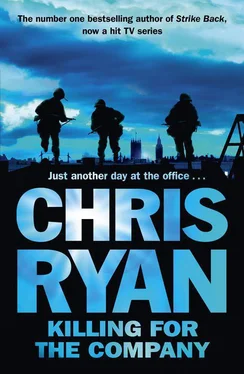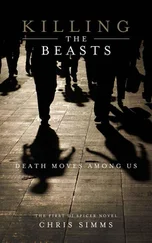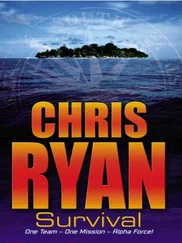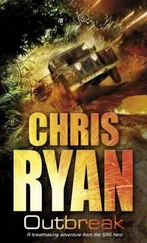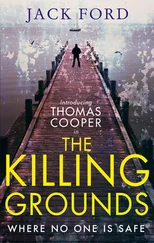Stratton gave the young PA a crushing look when he announced that Washington wanted to speak to him. ‘I said no calls. You do understand what “no calls” means?’
Wheatly felt himself blushing. ‘I just thought you… you might want to speak to the White House… they’re jolly keen to…’
But Stratton just walked over to his desk, took a seat and picked up a folder. Wheatly caught sight of an ornate, monogrammed ‘G’ on the front of the folder as he stood there awkwardly. After a few seconds, Stratton looked up, seemingly surprised that he was still there. ‘No calls,’ he said.
Wheatly was learning fast. Not only that the private personas of the powerful were very different to their public images, but also that the powerful were not always the first people to get their hands on the choicest information. He was astonished when, just after nine o’clock, the TV coverage had been interrupted for breaking news, delivered by a breathless reporter standing at the crash site.
‘ The BBC has learned that a small militant Palestinian group, the Union for Free Palestine, has claimed responsibility for the attacks. The UFP is loyal to the Palestinian administration, Hamas. So far Hamas have declined comment. ’
How had the press had this information before Stratton, the Middle East peace envoy?
As the evening wore on, Wheatly grew increasingly ragged — not on account of the TV footage of the train attacks — but from the long hours of refusing phone calls from the most powerful people in the world. He was no shrinking violet, but the aides in Washington, London and Tel Aviv gave such withering responses to his inability to put his boss on the line that it was starting to get him down. That and Stratton’s steadfast silence. With the exception of the short statement he dictated for Wheatly to release to the press wires when the news about the UFP came through, it almost felt as if Stratton was cocooning himself away from the outside world.
At 11.30 a communique from London informed Wheatly that an American amphibious warfare vessel, Wasp class — currently on anti-piracy duty in the Gulf of Aden — was heading north into the Red Sea. A ‘precautionary measure in the light of the day’s events’, Washington was telling the media, glossing over the fact that the ship carried a full complement of marines, a squadron of Harrier II ground-attack aircraft and an air group of personnel helicopters. Stratton seemed barely to register the information when his PA announced it. ‘Sir, you know what this means… the Americans are mobilising…’ he had started to say. ‘The British won’t be far behind… the Foreign Office need to speak to you…’ But his boss shooed him away with a flick of his left hand.
Wheatly turned in at about half past midnight. His quarters were away from the main residence in a converted barn, and that meant a 100-metre walk across the grounds. It always made him nervous doing this at night, because he knew that there were never fewer than five armed guards doing the rounds, recruited from some American company, and he saw in them the lazy arrogance that he believed was peculiar to the Yanks. He didn’t think any of them would mistake him for an intruder, but they weren’t all the sharpest pencils in the box, and he was never quite sure.
He fell asleep without even getting undressed, and was groggy and sweaty when his radio alarm clock woke him at six o’clock. As the pips disappeared and the Today programme started, he sat up bleary-eyed, feeling decidedly unenthusiastic about the day ahead. The news was full of the train bombings, of course. Frankly he was sick to death of hearing about them. He changed out of yesterday’s clothes only half listening to the barrage of repeated information and supposition; but he did stop to pay attention when the recorded voice of the Israeli Prime Minister came over the airways. In the background Wheatly could hear the constant clicking of cameras, and he could sense the nervous tension in whatever room in Tel Aviv the Israeli leader was speaking from.
‘ Israel ,’ he announced, his deep, gruff voice strangely emotionless, ‘ deplores these acts of terror. ’
A pause, and the clicking of cameras swelled somewhat.
‘ For many years, the Israeli people have suffered at the hands of these terrorists. It brings me no satisfaction to see that their acts of cowardice have now spread into the wider world. I call upon Hamas to denounce these actions. And if they will not, I call upon all right-thinking nations to stand up to this terror, and to destroy it. ’
Wheatly blinked. He knew fighting talk when he heard it, and he knew what it meant — for him, at least. Even more so than last night, the world and his wife would be wanting to speak to the man whose job it was to broker peace between these ancient enemies. If Stratton was in the same mood as he was last night, that meant his PA was in for a very long day. As if in response to that very thought, his mobile phone rang. Number withheld. Wheatly ignored it and went in search of his boss.
Stratton was not in his bedroom, nor was he in the study where Wheatly had left him the previous night. But the study looked out over an immaculate lawn on the opposite side of which, 200 metres from the house itself, was a handsome thirteenth-century stone building: Stratton’s private chapel. Wheatly had noticed that his boss had spent more and more time there of late, and at odd hours of the day. He saw him walking out now, dressed as he had been last night. Even from this distance he could see that Stratton looked crumpled and tired, as though he hadn’t been to bed. Had he spent more of the night in his office, or in the chapel? Wheatly wouldn’t have been surprised to learn that it was the latter, and he groaned inwardly. Most people, he thought to himself, walked out of church full of the milk of human kindness — at least for a little while. Not Stratton. He always emerged from that place even more oblivious to the sensitivities of anyone around him than before.
Wheatly sighed heavily. This really was going to be a long day.
He caught up with his boss halfway across the lawn. Stratton didn’t smell too fresh, but Wheatly supposed the same was true of himself, having slept all night in his clothes. Stratton didn’t appear to notice him until he was standing about a metre away. When he did, the usual look of irritation crossed his face.
‘Where’ve you been?’
‘Sleeping, sir.’
Stratton looked around, as though surprised to see that the night had passed, but he made no comment on it and started striding quickly towards the house, his PA trotting alongside.
‘We’ve calls to make,’ said Stratton.
Wheatly agreed. ‘I’ve been trying to tell you since…’
‘The people will expect a retaliation,’ Stratton interrupted, his voice slightly distant as though he was thinking out loud. ‘We’ve been here before.’
‘But retaliation,’ Wheatly said. ‘That will only lead to…’
Stratton stopped and looked at him. For the first time in he didn’t know how long, Wheatly felt he was actually being listened to.
‘To what?’ Stratton asked, his voice almost a whisper.
There was a pause as the two men looked at each other.
‘To war, sir.’
Stratton didn’t take his eyes off Wheatly, but he nodded slowly, neither smiling nor frowning. It was impossible to tell what he was thinking. And then, with a sudden movement, he turned and continued walking towards the house, leaving his PA standing in the middle of the lawn and wondering if, really, this was the job for him after all.
6 December.
The distance between Albany Manor and the Crown and Sceptre, a pub tucked away in the no-man’s-land between the Yorkshire Moors and the Lake District, was about 400 klicks as the crow flew. But in other ways these two places were a million miles apart.
Читать дальше
